Ghana, Togo & Benin tour, Ouidah voodoo festival
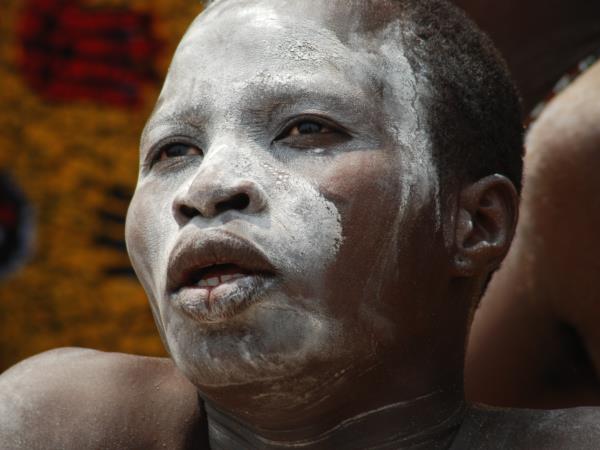
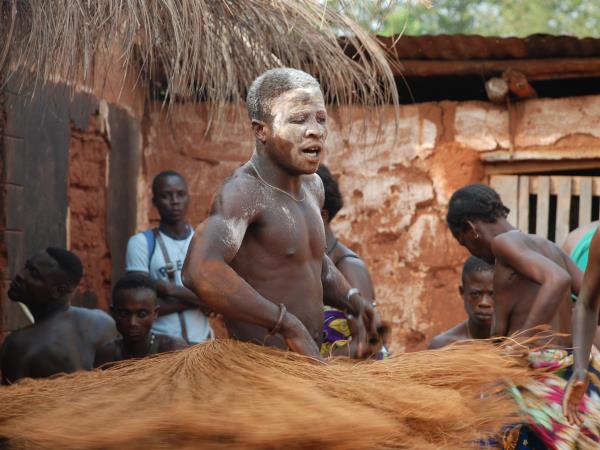
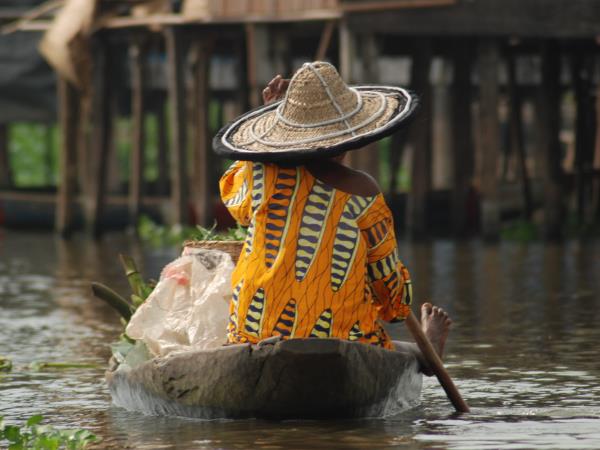
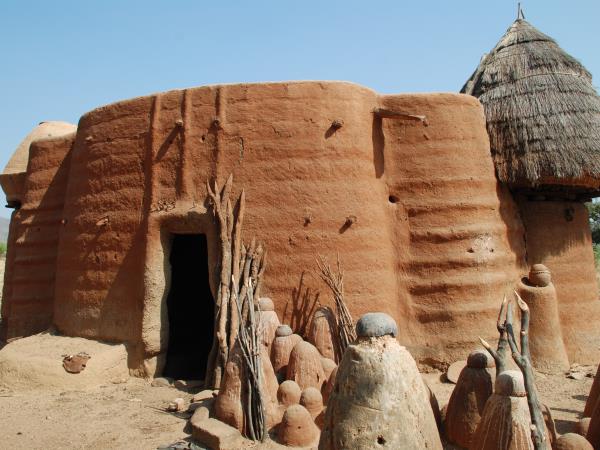
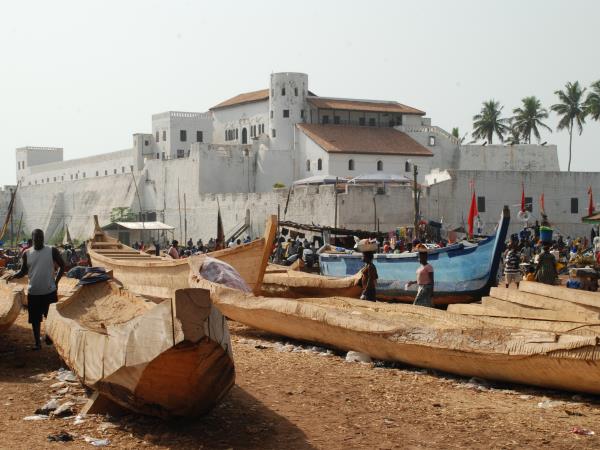
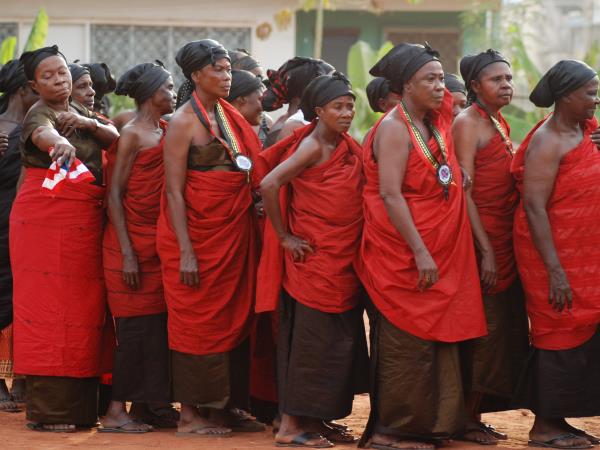
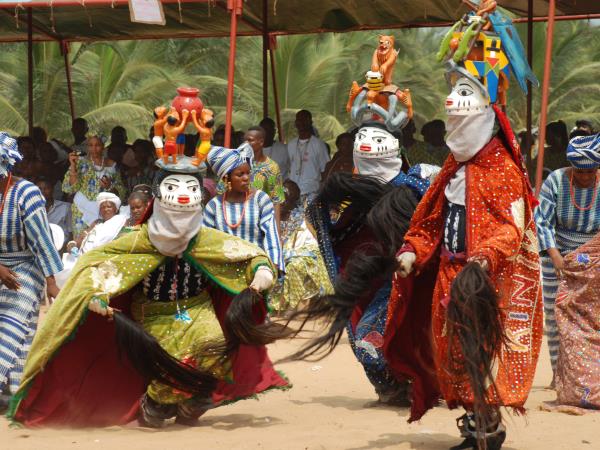
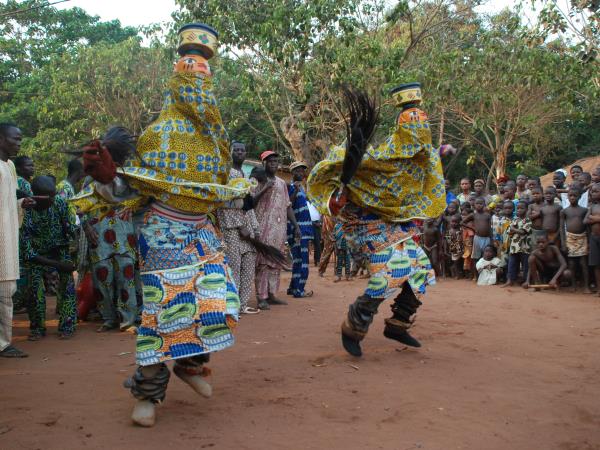
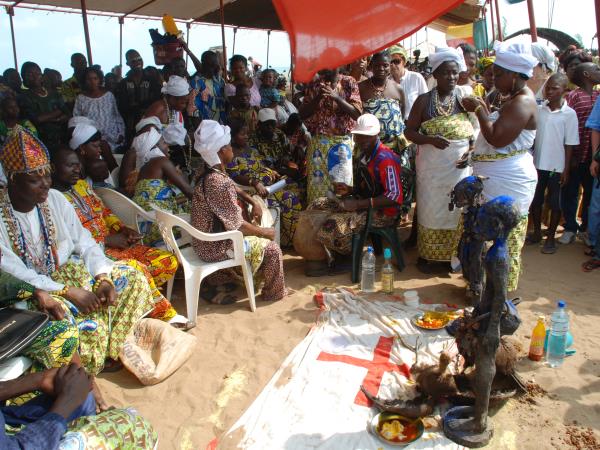
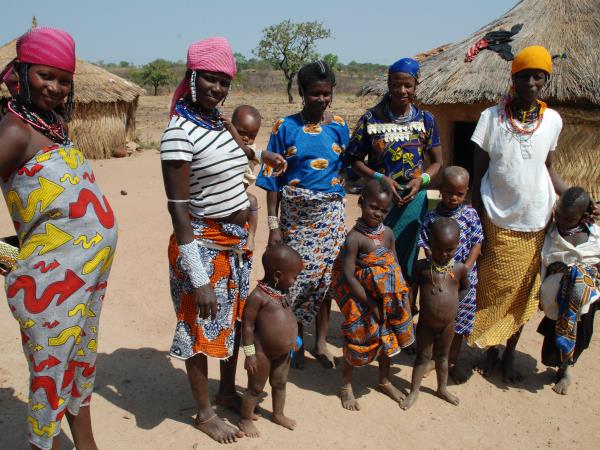
Description of Ghana, Togo & Benin tour, Ouidah voodoo festival
This exciting two week tour will take you across Ghana, Togo and Benin, where youll get the chance to witness Ouidahs incredible voodoo festival. Youll travel with a small group of likeminded travellers and experienced local guides on an adventure that will please Africa newbies and old hands alike.
In Benin youll spend time in Ouidah, exploring the city and visiting both a traditional healer and a fetish market, where youll see many animal parts for sale for use in traditional medicine. Youll also experience the colourful annual voodoo festival, when worshippers from across Benin come to take part in a variety of ceremonies celebrating gods and spirits. Other highlights of your Benin visit include a visit to Ganvie, the largest stilt village in Africa, and Abomey, once the centre of the powerful kingdom of Abomey.
In Togo, as well as passing briefly through Togolese capital Lome, youll visit the northern town of Sokode, where youll witness a fire dance, peruse traditional craft wares in Atakpame and Kpalime and take a night walk in the forests near Kloto.
In Ghana, highlights include a visit to Tafi Atome forest, home to a population of sacred monkeys; Kumasi, the countrys second city and once the centre of the powerful Ashanti Kingdom; and Elmina, where you can learn about the dark history of the Trans-Atlantic slave trade.
Check dates, prices & availability
Travel guides
Holiday information
Reviews
1 Reviews of Ghana, Togo & Benin tour, Ouidah voodoo festival
Reviewed on 24 Jan 2019 by Alona Shemesh
1. What was the most memorable or exciting part of your holiday?
Elmira castle
The Fisherman zone Accra
2. What tips would you give other travellers booking this holiday?
Be prepared for very long drives - with very few to see on the way
Take some snacks from ho,e with you - food is not so.....
and make sure your Visas are done properly. Many of us had mistakes in the Visa issued in origin countries and passing the borders between Ghana-Togo-
Benin is a procdure
3. Did you feel that your holiday benefited local people, reduced environmental impacts or supported conservation?
not at all
4. Finally, how would you rate your holiday overall?
I'm happy I joined the tour. We didn't see the Voodoo festival as we expected and was the highlight of the tour. Partly because the guide brought us in the
wrong hour and not to the exact place. The tour (or Africa) did not feel as an inviting place and I do not feel i shall hurry to come again,
Read the operator's response here:
We are really pleased to hear that you enjoyed your trip and that the sights in Elmina and Accra were real highlights for you.
With regards to the Ouidah Voodoo Festival, the day is a national holiday and a number of different ceremonies and celebrations take place all throughout the town. We understand that you spent some of the morning observing these different events before heading to the main festival area in the midmorning, and we feel that these are worthwhile visits to make. Some of the smaller ceremonies have a more intimate feel than the main festival and including these gives an authentic picture of the whole event.
We have taken your comment very seriously however, and will work to reflect all of the above information in a clearer way on our website and when sending out pre-departure packs to our travellers. We hope this will help to avoid any future disappointment about the structure of events.
On the subject of road travel in West Africa, we always try and prepare our travellers for this before departure and we send out detailed country information that includes a section about the condition of the roads and length of the journeys. Roads can often be poorly maintained and distances between key sites of interest can be long, not just due to underdeveloped roads, but because the main sites of interest are often spread out with regards to distance. Travelling in West Africa can be described as a little unpolished at times and it is important to remember that infrastructure here cannot be compared to that of more developed parts of the continent such as the popular tourist destinations of east and Southern Africa. We feel that this is all part and parcel of the adventure and hope you found that the destinations were well worth the journeys.
We understand that the food in West Africa can perhaps be a little bland for Western palates, as the staples are starchy foods such as pounded yams and rice, but this is something that we hope you understand is beyond our control. We find that most of our travellers enjoy embracing local cuisines, as part of immersing themselves fully in the country they are travelling in.
Lastly, we work with local guides and drivers to ensure that money stays in local economies and that the local people are benefitting from our tourism. Also, we use smaller hotels where possible. Environmental thinking isnt at the forefront of everyday life in west Africa, but we do our best to ensure that our travellers don't contribute to natures downfall - we send out information before the tour about taking litter back to hotels (including cigarette butts) to dispose of properly and to not eat any bushmeat as hunting of these animals has severe consequences on their populations. We also advise about sensitive photography.
Again, thank you very much for your feedback and we are glad you had a good time overall.
Responsible Travel
Planet
This tour travels through some very remote regions, some of which have barely been touched by the presence of humans, and we strongly believe in maintaining their pristine nature. We strive to ensure that we leave these areas as we find them and our team have been trained in strict no litter policies, meaning that we take all refuse to either be recycled or properly disposed of in nearby towns.In conjunction with our local team we work with hotels and guesthouses to implement best practices when it comes to environmental matters again in some places this is far behind what we might be used to in other parts of the world. This includes basic things like not replacing towels each day, as well as saving electricity and turning lights off.
Our travellers are specifically briefed on not to buy souvenirs made from endangered species people in remote parts of West Africa do not always have the same respect towards wildlife as most travellers will have, and can sometimes offer such things for sale. This also extends to bushmeat it is quite common to find antelope, porcupine or even monkey served in restaurants, and we specifically advise our travellers against contributing to the depletion of local populations.
People
As with many of the trips that we offer, this tour has a strong focus on local culture and different ethnic groups. Where possible we try to ensure that local people benefit from our presence.We spend time with a number of different ethnic groups on this trip, from the Tamberma to the Dagarti. We consult extensively with local tribal elders to ensure that our presence here is very much welcomed we feel that it is very important to be seen as guests here rather than outsiders come to merely look. We are able to spend time with the communities learning about their traditions and customs.
We are careful not to disrupt the traditional way of life of the people that we meet. As a way to say thank you for allowing us to visit, we bring traditional gifts, such as sugar, tea and so on we do not bring modern accoutrements that may change their way of life as we feel that it is important for all tribal groups that any move towards a more modern lifestyle is made on their own terms and not imposed upon them. We give gifts to the elders of the villages who will then ensure that they are distributed appropriately, rather than just giving them to individuals, which can cause problems, jealousy and fights within small communities.
Where small local shops exist within the villages, we encourage our travellers to but something, be it a cold (or not so cold, given the lack of electricity!) drink or a snack, so that we have some economic benefit, however small. We employ local guides from the villages to show us around not only does this give our travellers a greater insight into traditions but again it helps to put money into the local economy.
These are very traditional areas with certain codes of behaviour, and the people here are not that accustomed to outsiders. We ensure that our travellers are appropriately briefed in order so as not to offend local sensibilities. This includes photography while we recognise that many people are incredibly photogenic it is important for us to respect their wishes should they not want to have their photo taken, and our travellers are carefully briefed upon this.
Popular similar holidays
Ghana, Togo and Benin holiday, gold and magic
From £3199 - £3499 14 days excluding flights
Traditional villages and voodoo in Ghana, Togo and Benin
Ghana, Togo and Benin holiday
From £3799 16 days excluding flights
Culture, landscapes and Ouidah Vodoun Festival
West Africa tour
From £2549 - £3245 14 days excluding flights
Discover two small, mighty West African countries



















